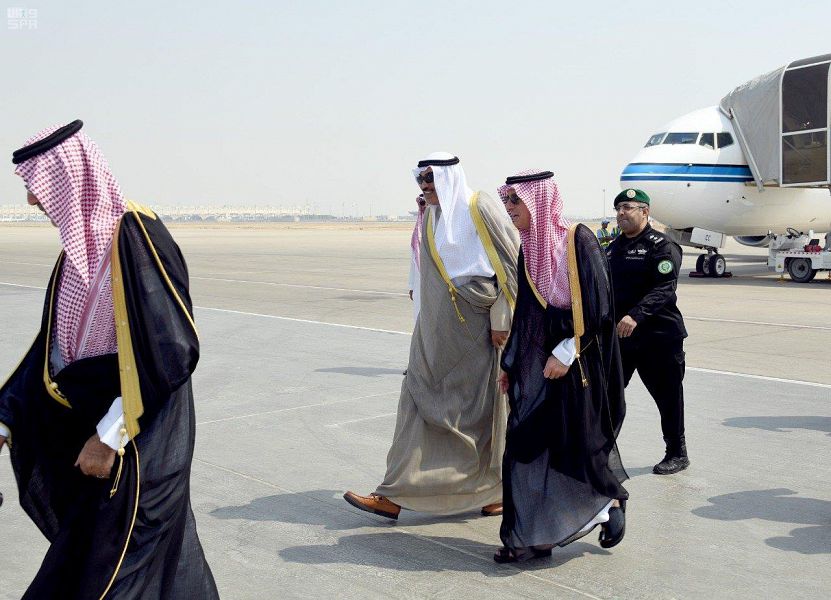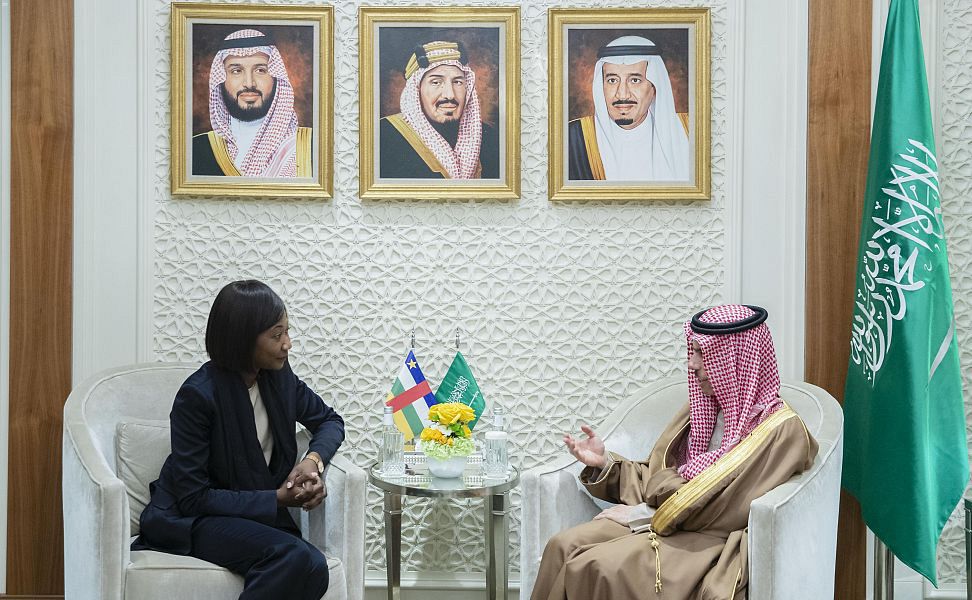
2,083 dead: The toll of Israeli attacks on Lebanon over the past year
Safadi stresses Jordan’s support for Lebanese government
BEIRUT: Jordan’s Deputy Prime Minister Ayman Safadi, who also serves as foreign minister, has said that Israel’s war with the Iran-backed Hezbollah in Lebanon is pushing the Middle East into the “abyss of full-scale regional war.”
Safadi was speaking at a news conference following a meeting with Najib Mikati, Lebanon’s caretaker prime minister, in Beirut.
Safadi’s remarks came as Lebanon commemorated the first anniversary of clashes between Israel and Hezbollah.
As of Oct. 7, the death toll had reached 2,083, including children, women, and high-ranking Hezbollah field commanders, along with casualties from the Lebanese army and Hezbollah-affiliated groups, medical staff, paramedics, firefighters, and journalists.
Additionally, there have been 9,869 people injured.
Safadi said that Jordan backed the Lebanese government’s initiative to elect a new president and its commitment to implement the UN Security Council resolution that ended Israel’s last war with Hezbollah in 2006 and aimed to keep southern Lebanon under the control of the Lebanese military and UN peacekeepers.
Safadi reaffirmed Jordan’s unwavering commitment to supporting Lebanon’s security, sovereignty, and the well-being of its citizens.
He spoke of Jordan’s readiness to assist Lebanon in facing the aftermath of recent attacks, which he characterized as a flagrant violation of international law and Lebanese sovereignty.
Safadi reiterated Jordan’s support for Lebanese efforts to strengthen its national institutions and make sovereign decisions.
He asserted that Jordan “will not allow itself to become a battleground for any party, nor tolerate any breaches of its airspace or sovereignty that threaten the security of its citizens.”
He added: “We have delivered this unequivocal message to both Iran and Israel.”
Lebanon’s Interior Minister Bassam Mawlawi said that directives had been issued to enhance security measures.
Transport Minister Ali Hamieh said: “The ministry does not grant permission for any aircraft to land at Beirut International Airport — which remains operational — without prior approval from the military.”
He added that “all warships or vessels involved in military operations must secure a permit from the Joint Maritime Chamber — comprising the army, general security, internal security forces, state security, and other relevant agencies — before they are permitted to dock at any seaport.”
Hamieh emphasized the importance of “conducting security checks on all individuals and trucks at land crossings.”
He said Mikati “is dedicated to keeping Lebanon’s land, sea, and air crossings open to facilitate humanitarian aid and bolster the economy, reaffirming that Lebanon remains accessible to all nations, with reinforced security protocols in place.”
The Israeli army announced on Monday “the start of a focused and specific ground operation in southern Lebanon, with the Galilee Brigade 91 joining the operations.”
Israeli forces conducted an airstrike on a building belonging to the Federation of Municipalities of Bint Jbeil District in the town of Barashi, resulting in the deaths of 10 firefighters from the Islamic Health Organization, which is associated with Hezbollah.
Destructive airstrikes also continued in the southern suburbs of Beirut, as well as in the south region and the Bekaa Valley.
A spokesperson for the Israeli army told residents of 25 southern villages on Monday to evacuate the area, reminding those who had left their homes and villages not to “return until further notice, to ensure their safety.”
Israeli warnings also extended to anyone attempting “to repair the border road between Lebanon and Syria at the Masnaa point that was bombed by Israeli raids last week.”
Israel also warned “any party trying to approach the building that targeted the Head of Hezbollah’s Executive Council Hashem Safieddine, in the deepest tunnels under it last Friday in the southern suburbs of Beirut, not to approach it to rescue him and those buried with him under it.”
Safieddine was regarded as one of the most prominent candidates to succeed killed Hezbollah Secretary-General Hassan Nasrallah.
Thick black smoke filled the sky over the southern suburbs following a night of intense violence marked by Israeli airstrikes that destroyed several residential buildings.
Israeli warplanes conducted over 30 airstrikes within half an hour on villages and towns in the Tyre district, along with numerous strikes in the central and eastern sectors, extending to the Nabatieh Governorate and the Jezzine District.
A raid on a residence in Srifa resulted in the deaths of four people, including a chief warrant officer in the Lebanese army, while a raid on a house in Kherbet Selem led to one fatality, and a strike on a house in Qaliya in Western Bekaa to the deaths of two people.
Hezbollah expanded the scope of its military operations on Monday against northern Israel by launching attacks on the city of Haifa and its residential neighborhoods.
The group reported that it struck the Carmel base in southern Haifa using Fadi missiles.
Hezbollah also targeted the settlement of Kiryat Shmona while extending its reach to the settlement of Dan near the occupied Golan Heights.
Israeli media reported that missiles had exploded in locations within Haifa — including a residence and a restaurant — resulting in significant material damage.
Channel 14 in Israel reported that several injured people from Haifa were transported to Rambam Hospital.
Israeli media reported in the afternoon that 60 missiles had been launched from Lebanon in the space of 90 minutes toward northern Israel. Hezbollah indicated that the settlements of Karmiel and Kfar Vradim had been targeted.









